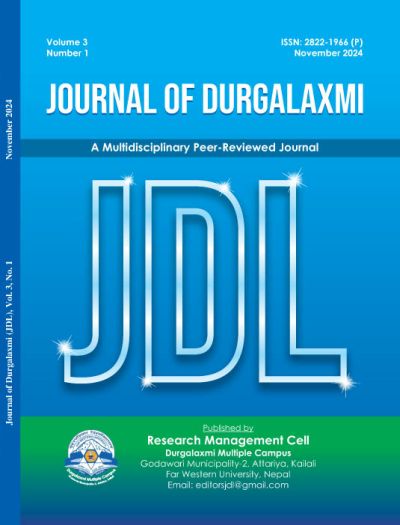Quantum Computing: Potential Impacts on Cryptography and Data Security
DOI:
https://doi.org/10.3126/jdl.v3i1.73848Keywords:
RSA, ECC, quantum key distribution (QKD), post-quantum cryptography (PQC), quantum-resistantAbstract
Quantum computing introduces a new paradigm that brings about, by its very nature, revolutionary changes in cryptography and data security. This section will shortly discuss some of the impacts of quantum computing technologies on cryptographic protocols, focusing on the various vulnerabilities introduced by algorithms such as Shor's algorithm, capable of solving some problems-integer factorization and discrete logarithms-provided that polynomial complexity is achieved on quantum computers. Quantum algorithms will soon render traditional cryptographic techniques using RSA and ECC vulnerable, hence the development need for PQC techniques. It purports to analyze the available research and discusses the development, challenges, and future directions of quantum- resistant cryptographic methodologies. This paper emphasizes that transitioning towards PQC is urgent to maintain all attributes of data, such as confidentiality, integrity, and authentication in the quantum computing era. QKD emerges as a promising approach that uses the principles of quantum mechanics to provide physical-layer security for communication channels. Based on these phases, the paper develops into recommendations on building resilience in cryptography with the prospect of quantum computing.
Downloads
Downloads
Published
How to Cite
Issue
Section
License

This work is licensed under a Creative Commons Attribution-NonCommercial 4.0 International License.
CC BY-NC: This license allows reusers to distribute, remix, adapt, and build upon the material in any medium or format for noncommercial purposes only, and only so long as attribution is given to the creator.




